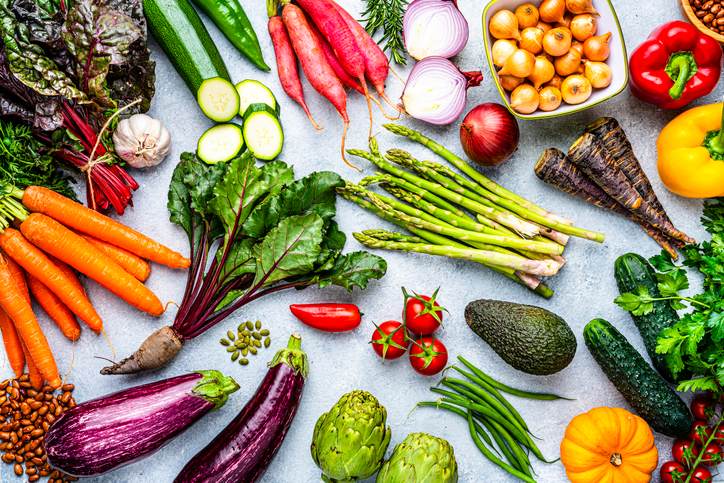Living a perfectly healthy lifestyle is not easy. When it comes to a balanced diet, there are many aspects that must be considered and factored in, but there is no questioning the importance of healthy food in your life. Maintaining a proper diet leaves no room for disease, infection or even exhaustion. Eating healthy foods is all about feeling good, having more energy, and improving your overall general health.
What exactly is a balanced diet?
A balanced diet is a diet that is combined with all the important nutrients your body needs to function correctly. These include fibre, protein, carbohydrates, fats/lipids, vitamins, and minerals. The importance of your diet lies in the correct intake of each of these elements. Calories also play a massive role in your diet. Calories are units of energy that are found in every form of food and drink. Everyone’s calorie recommendation is different depending on age, weight, gender, and the amount of exercise you do.
Break down of food components:
Fibre
Fibre is a non-digestible carbohydrate that is found in food. Its main function is to prevent or relieve constipation and benefits our digestive system in many ways. Foods high in fibre, that are recommended for consumption, are fruit, vegetables, whole grain products, peas/beans, and pulses. Apart from its main aim, fibre has many other health benefits such as lowering your risk of diabetes, heart disease, and some types of cancer. It also can help many people maintain a healthy weight. It is important to monitor your fibre intake closely as adding too much can promote intestinal gas, abdominal bloating and cramping.
Protein
Protein is a fundamental element of the food pyramid that is essential for growth, repair and maintaining a healthy body. The amount of protein that is recommended for you to consume each day changes over time depending on your age and weight. The Reference Nutrient Intake (RNI) is set at 0.75g of protein per kilogram of body weight per day for adults. Protein provides the body with approximately 10 to 15 per cent of its dietary energy and it is the second most abundant compound in the body, following water. Our main provider of protein comes from animal sources (e.g. Meat, fish, eggs and all dairy products). These elements contain efficient amounts of amino acids that are needed by our bodies. There are many alternatives for vegans and vegetarians, by combining different plant sources, like pulses and cereals to consume amino acids.
Fat
From a nutritional point of view, dietary fats are important for several health-related aspects and for the optimal functioning of the human body. Fat intake should be monitored daily, as too much can raise your cholesterol which increases the risk of heart disease.
Fat is essential as it is a carrier of fat-soluble vitamins A, D, E and K, supporting their absorption in the body. Fats are also an important source of energy in the human diet. This element can be stored in the body’s fat tissue and releases fatty acids when energy is needed. There are many fatty foods on offer that provide adequate amounts of fat whilst remaining relatively healthy. These include:
- Avocados
- Cheese
- Dark chocolate
- Whole eggs
- Fatty fish
- Nuts
These three components are fundamental when it comes to a balanced diet and it is important to monitor your intake of them daily. Eating well is vital for all of us. In the short term, it can help us to feel good, look our best and stay at a healthy weight. There are also some other elements you will need to factor into your diets, such as vitamins, minerals, and water.
How can Cavendish Homecare help
At Cavendish Homecare we pride ourselves on being able to devise and deliver many different types of private homecare in London that are tailored to an individual client’s needs, while also offering flexible care options that can be adapted if circumstances change. If you would like to know more or to discuss requirements, please call us on 020 3008 5210 or email us at info@cavendishhomecare.com.
About the Author…
Zahrah Abdullah
Operations Assistant
During her time as a Youth Worker at Challengers, a charity dedicated to supporting children and young people with disabilities, Zahrah demonstrated excellence in assisting in the delivery of inclusive play activities. She gained knowledge in Makaton, and underwent training in Crisis Prevention/Intervention, specifically focusing on managing challenging verbal and physical behaviours.
Currently holding a key role within Cavendish Homecare’s operations team, Zahrah takes charge of ensuring the seamless set up of new cases, managing the distribution of personal protective equipment (PPE) to clients and the nursing and carer teams, organising staff training and providing crucial support to Nurse Managers.

 Back
Back